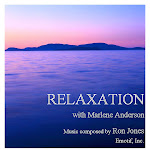
"What alone remains is 'the last of human freedoms' - the ability to 'choose one's attitude in a given set of circumstances." Victor Frankl, "Man's Search for Meaning"
Victor Frankl was a psychiatrist and a Jew who lived during the Nazi regime in Germany. He, along with his entire family, was sent to Nazi concentration camps. He ended up in Auschwitz, one of the most dreaded WWII camps. Except for his sister and himself, his entire family perished in those camps. Every possession was taken from them, and the Jews who weren't shot or sent to the gas chamber, endured years of unspeakable horror. In his book, "Man's Search for Meaning", Frankl writes:
"In spite of all the enforced physical and mental primitives of the life in a concentration camp, it was possible for spiritual life to deepen..."
As a psychiatrist, physician and author, he was now a student in the cruelest of life's classrooms struggling to survive physically, mentally and spiritually. He discovered that men could be compassionate to others who were dying and that apathy ". . . could be overcome, irritability suppressed. Man can preserve a vestige of spiritual freedom, of independence of mind, even in such terrible conditions of psychic and physic stress."
Why is any of this important to us today? What does a psychiatrist, a Jew and concentration camps have to do with our life? For one, it puts into perspective the poroblems we may be experiencing. And for another, it is important to understand that nothing can take away our abilty to choose our responses to whatever life throws at us. In the midst of unimaginable conditions, Frankl evidenced the indomitable human spirit. He discovered that prisoners faced with death and unexpected daily torture could focus their minds on things that were good. They could even see the beauty of God's earth around them. They could "rise above any situation even if only for a few seconds" when they found and expressed humor. He and another prisoner daily invented at least one amusing story to share with each other.
We make choices every minute of the day. In fact, we cannot not choose. When we accept what is happening, we are then able to make conscious decisions as to how we will respond. We can choose to respond with anger and resentment or retreat into fear and anxiety. Or we can choose to find meaning in what is happening, for it isn't the situation that is as important as our response to it. You may be going through what seems like overwhelming circumstances. But we can learn and identify with those prisoners who ". . . were able to retreat from their terrible surroundings to a life of inner riches and spiritual freedom."
Frankl discovered that those that would have a chance to survive were those "who held on to a vision of the future." They had to find meaning in the suffering tiself. We can also find meaning and purpose in whatever circumstances we face. And we can choose a response that will enable us to learn, benefit and rise above any circumstance.
Victor Frankl was a psychiatrist and a Jew who lived during the Nazi regime in Germany. He, along with his entire family, was sent to Nazi concentration camps. He ended up in Auschwitz, one of the most dreaded WWII camps. Except for his sister and himself, his entire family perished in those camps. Every possession was taken from them, and the Jews who weren't shot or sent to the gas chamber, endured years of unspeakable horror. In his book, "Man's Search for Meaning", Frankl writes:
"In spite of all the enforced physical and mental primitives of the life in a concentration camp, it was possible for spiritual life to deepen..."
As a psychiatrist, physician and author, he was now a student in the cruelest of life's classrooms struggling to survive physically, mentally and spiritually. He discovered that men could be compassionate to others who were dying and that apathy ". . . could be overcome, irritability suppressed. Man can preserve a vestige of spiritual freedom, of independence of mind, even in such terrible conditions of psychic and physic stress."
Why is any of this important to us today? What does a psychiatrist, a Jew and concentration camps have to do with our life? For one, it puts into perspective the poroblems we may be experiencing. And for another, it is important to understand that nothing can take away our abilty to choose our responses to whatever life throws at us. In the midst of unimaginable conditions, Frankl evidenced the indomitable human spirit. He discovered that prisoners faced with death and unexpected daily torture could focus their minds on things that were good. They could even see the beauty of God's earth around them. They could "rise above any situation even if only for a few seconds" when they found and expressed humor. He and another prisoner daily invented at least one amusing story to share with each other.
We make choices every minute of the day. In fact, we cannot not choose. When we accept what is happening, we are then able to make conscious decisions as to how we will respond. We can choose to respond with anger and resentment or retreat into fear and anxiety. Or we can choose to find meaning in what is happening, for it isn't the situation that is as important as our response to it. You may be going through what seems like overwhelming circumstances. But we can learn and identify with those prisoners who ". . . were able to retreat from their terrible surroundings to a life of inner riches and spiritual freedom."
Frankl discovered that those that would have a chance to survive were those "who held on to a vision of the future." They had to find meaning in the suffering tiself. We can also find meaning and purpose in whatever circumstances we face. And we can choose a response that will enable us to learn, benefit and rise above any circumstance.
Marlene Anderson, MA, LMHC, NCC
Copyright 2010
Note: In April, 1945, Frankl's camp was liberated. He went on to reconstruct a major work that had been lost when he was interred. Nine days after it's publication, he wrote "Man's Search for Meaning" which has sold over 5 million copies in the U.S. alone. In 1948 he received his PhD in philosphy and went on to teach at the University of Vienna until 1990 when he was 85. He died, September 2, 1997.


